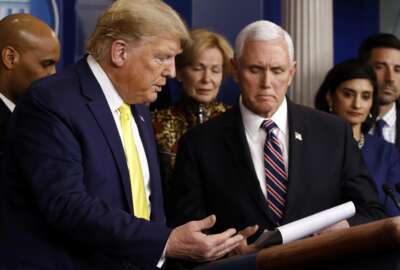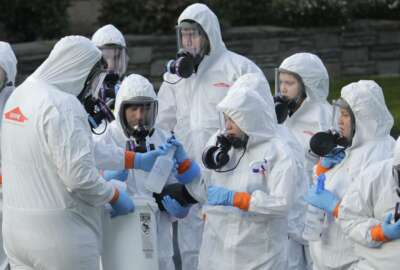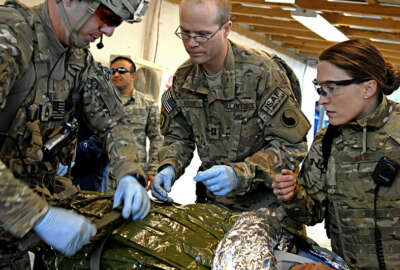
Pentagon imposes new travel restrictions for military, civilian personnel
DoD organizations are being told to put all non-mission-essential travel on hold for at least the next two months. Travel bans to and through some countries wil...
The Defense Department said Wednesday night that it is implementing a sweeping set of travel restrictions that will affect both uniformed and civilian personnel as it tries to limit the spread of the coronavirus.
Starting on Friday, all military organizations and Defense agencies will need to defer any of their employees’ official travel plans unless they’re deemed “mission essential,” according to a memo from Defense Secretary Mark Esper.
The directive allows for exceptions — including for humanitarian reasons or “extreme hardship” — but those will need to be approved by a general or flag officer, or a member of the Senior Executive Service.
“These exceptions are to be done on a case by case basis, shall be limited in number, and shall be coordinated between the gaining and losing organizations,” Esper wrote. “Individuals pending retirement or separation within the next 60 days are exempt.”
But the new restrictions are even more severe for personnel who are already in, or plan to travel through, parts of the world that have been hardest hit by the virus thus far.
Starting on Friday, DoD will implement a 60-day freeze on travel to, from or through parts of the world deemed by the Centers for Disease Control as “Level 3” risks for health issues. As of Wednesday night, those places included all of continental Europe, South Korea, China, Venezuela and Iran.
That portion of the ban also applies to military service members who are overseas while on vacation, visiting family, or for other non-official reasons. According to Esper’s memo, they will have until Friday to leave the area before the travel ban takes effect.
“DoD travelers should carefully plan travel to ensure their scheduled flights do not transit through or originate in Level 3 designated locations,” he wrote.
A separate memo the department issued Wednesday night from Alexis Ross, DoD’s acting personnel undersecretary, also laid out new screening procedures for Defense personnel who are still traveling.
According to those directives, anyone traveling on a military aircraft will need to have their temperature taken before boarding the plane and be given a questionnaire to help determine their potential exposure to the virus. If employees are traveling on commercial airlines, DoD components are being urged to conduct similar procedures when they arrive in the U.S.
And if Defense organizations become aware of any service member who’s traveled through a Level 3 or Level 2 location in the last two weeks, they’ll need to restrict that person to their home “or other appropriate domicile” for the next 14 days, with self-monitored checks for fever twice a day.
Copyright © 2024 Federal News Network. All rights reserved. This website is not intended for users located within the European Economic Area.
Jared Serbu is deputy editor of Federal News Network and reports on the Defense Department’s contracting, legislative, workforce and IT issues.
Follow @jserbuWFED






